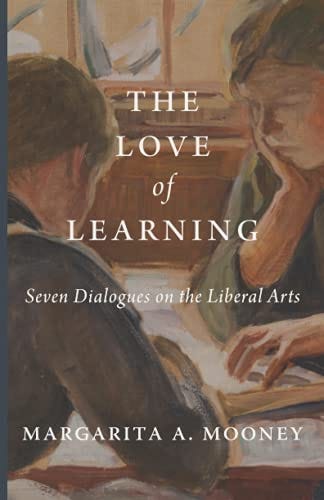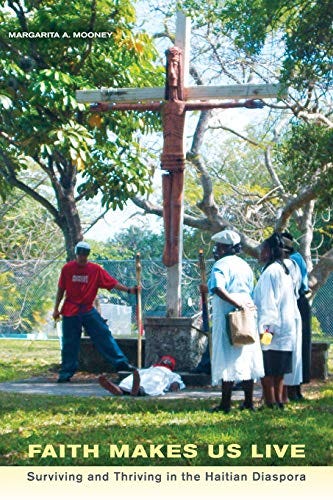In the episode, I speak with Professor Margarita Mooney about her time in Nicaragua and how these experiences shaped her scholarly work and teaching at the intersection of sociology and philosophy.
Margarita tells a story of her time in Nicaragua and how a weekend trip to a political rally in a small community where she almost was kidnapped challenged her assumptions about elite education in the United States. Margarita explains how her engagement with poor women farmers and micro-entrepreneurs helped her realize the power of small acts of love and solidarity to help alleviate the problems of violence from the bottom up – and how these things are neither taught nor accounted for at elite universities where a technocratic approach reigns. Margarita discusses how sociology does not address the problem of evil but rather sees it as a social or structural problem, but this does not align with ethnographic studies and the real work of talking to people about their experiences of war and violence.
Margarita talks about her founding of the Scala Foundation to address questions of meaning, beauty, and wisdom because she was worried that many Ivy League and other universities are creating a culture of resentment and anger for people who are genuinely concerned about justice but don’t have a framework to understand justice, subsidiarity, solidarity, truth, and law outside of power and politics.
As she explains in her essay “Why Choose Mystery over Ideology”
“The void left by the denigration of beauty and a classical liberal arts education is directing more and more people to “woke” social justice activism or alt-right movements because those movements offer them meaning, purpose, and hope, as well as community and a sense of belonging. Others burn out psychologically or resort to social isolation because trust and intimacy are hard to experience. Yet others resort to drugs, pornography, or another temporary pleasure to fill the void. Still, others pursue ambitious and demanding careers without reflecting on how they should live or why they exist to begin with. The result is skyrocketing rates of anxiety, depression, and suicide. Educational institutions have not succeeded in addressing these problems, leading many people to seek alternatives to feed their minds and souls.”
Any conversation with Margarita Mooney is interesting and wide-ranging and we discuss a number of broad themes and thinkers including:
Subsidiarity and Solidarity
Fascination with Violence
Rene Girard
Jacques Maritain
Participation as a remedy to alienation
The Nicaraguan Civil War -- Contras and Sandinista
Haiti
St. Thomas Aquinas on just war, violence, and pacifism
Solidarity as a means to inclusion
Solidarity Structures, institutions, property rights, law, exchange, are required to serve families
Family as a place of moral formation
The proper role of government
The Bruderhof Communities and Plough Magazine
Edmund Burke’s ideas about society as a “partnership” among the living, dead, and yet to be born
Commutative Justice — exchange
John Paul II on participation
The documentary, Poverty, Inc.
Rwandan Genocide and Rwandan reconciliation
Integration of the Virtues
Moral Formation
Sin and Redemption
Law and Justice
Beauty
Ideology and the closed systems that close of access to the transcendent
Hopelessness
Critique of utilitarianism that reduces the value to the economic value
The dangers of cultural imperialism
Virtues –Cardinal Virtues, Daughters of Virtues and Vices
Luigi Giussani on Education
Karl Stern –poetic knowledge in The Flight from Woman
Biography
Margarita Mooney is an Associate Professor in the Department of Practical Theology at Princeton Theological Seminary. She teaches courses on the philosophy of social science, Christianity and the liberal arts tradition, aesthetics, research methods for congregational leaders, and sociology of religion.
Margarita founded Scala Foundation in 2016 and continues to serve as Scala’s Executive Director. Scala’s mission is to infuse meaning and purpose into American education by restoring a classical liberal arts education. At Scala’s conferences, reading groups, seminars, webinars, student trips, intellectual retreats, and intensive summer program, Scala equips students, writers, artists, intellectuals and teachers with the ideas and networks needed to revitalize culture.
Margarita’s most recent book with Cluny Media, The Love of Learning: Seven Dialogues on the Liberal Arts (2021), grew out of her decades of experience as a teacher and scholar. Her book Faith Makes Us Live: Surviving and Thriving in the Haitian Diaspora (University of California Press, 2009) demonstrated how religious communities support the successful adaptation of Haitian immigrants in the U.S., Canada and France, and she’s the co-author (with Camille Z. Charles, Mary S. Fischer, and Douglas S. Massey) of Taming the River: Negotiating the Academic, Financial, and Social Currents in Selective Colleges and Universities (Princeton University Press, 2009).
Margarita received her B.A. in Psychology from Yale University and her M.A and Ph.D. in Sociology from Princeton University. She has also been on the faculty at the University of North Carolina at Chapel Hill, Yale University, Princeton University, and Pepperdine University.
https://www.themoralimagination.com/episodes/carlo-lancell
Video: Immaculee Ilibigiza on Reconciliation in Rwanda
The Love of Learning: Seven Dialogues on the Liberal Arts
By Mooney, Margarita A.
Left to Tell: Discovering God Amidst the Rwandan Holocaust
By Ilibagiza, Immaculee
By Jacques Maritan
Man and the State (Not In A Series)
By Jacques Maritain
Faith Makes Us Live: Surviving and Thriving in the Haitian Diaspora
By Mooney, Margarita
The Crisis of Modernity (Volume 64)
By Del Noce, Augusto, Lancellotti, Carlo
By Maritain, Jacques
By Jean-Louis, Daniel, Klamer, Jacqueline
By Stern, Karl





















